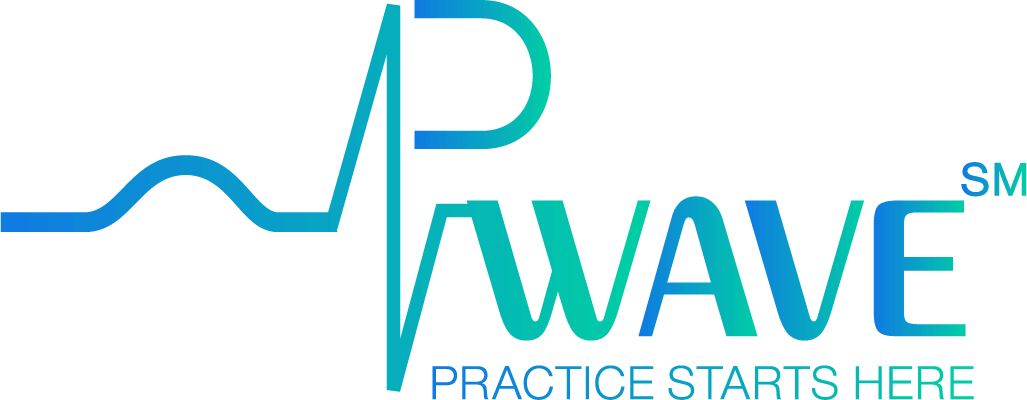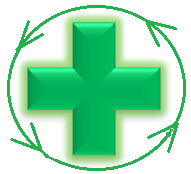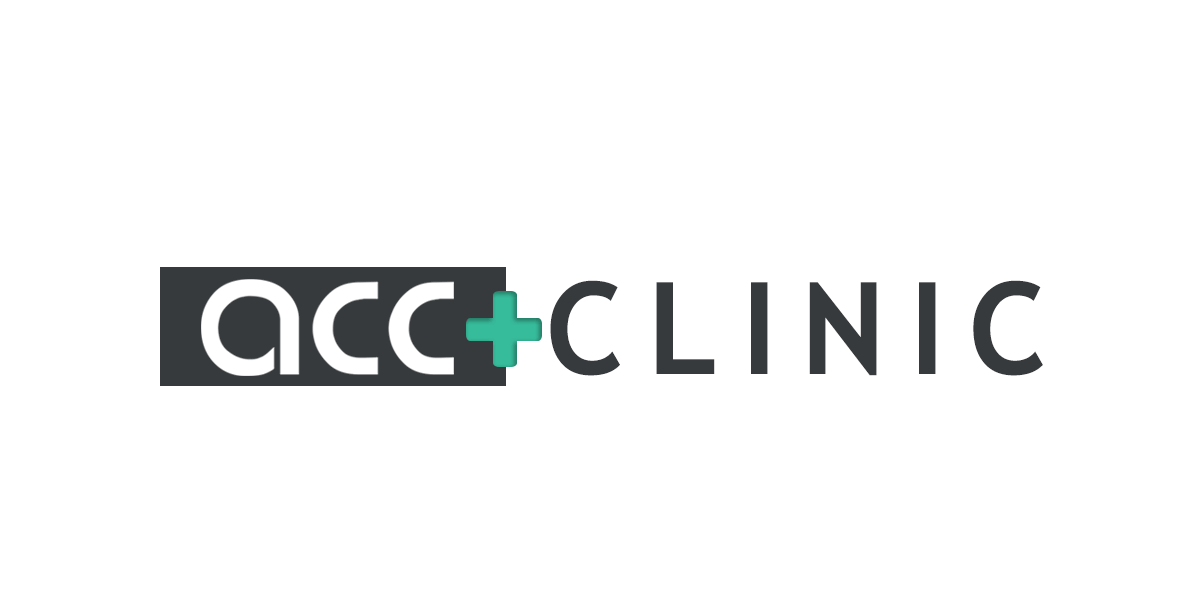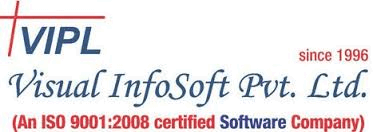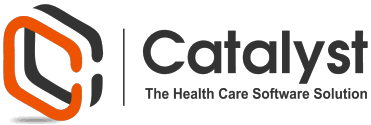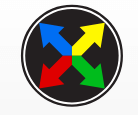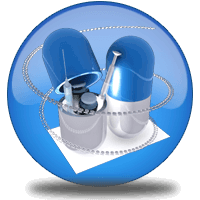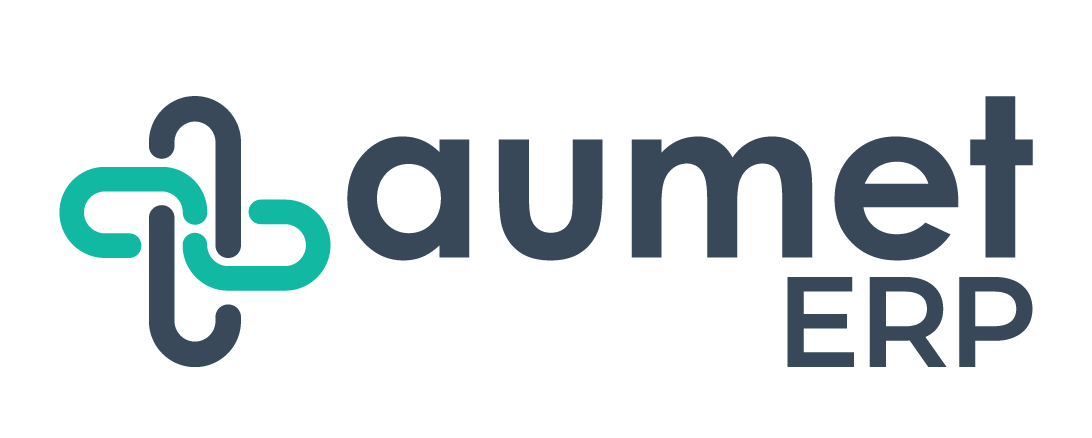Yes, most current pharmacy software is accessible across numerous devices and platforms. This means you can use the software on your computer, tablet, or smartphone, and it works effortlessly on both iOS and Android operating systems. This provides flexibility and convenience because you can access the software from anywhere and at any time, making it easier to run your pharmacy's operations smoothly.
List of 20 Best Pharmacy Software
Marg ERP 9+ Pharmacy Software is the most trusted choice for your business, with a solid customer base of over 9 lakh users and support from more than 800 centres. Take full control of inventory, billing, accounting, and keep track of important data...Read More Marg ERP 9+ Pharmacy Software
Pwave Chem solution for pharmacists to effectively manage their store from any location. Our user-friendly app helps track inventory expiry dates, prevent theft, and ensures regular inventory checks. With Pwave Chem, streamline your operations and ha...Read More Pwave Chem
S2K Enterprise Management Software is a cloud-based solution designed for midsize and enterprise businesses. With its advanced ERP functions, S2K enables companies to proactively meet consumer demands and streamline operations. Utilizing cutting-edge...Read More S2K Enterprise
HealthLink Pharmacy E-Commerce, the premier e-commerce software for both retail and wholesale pharmacies. Transform your sales and streamline day-to-day operations with our highly acclaimed solution. Our platform equips pharmacy businesses with the t...Read More HealthLink Pharmacy E-Commerce
SoftClinic GenX is a Digital HealthTech Platform designed to enhance the healthcare experience. Our comprehensive suite of EMR/EHR, HMS/HIS, laboratory, and pharmacy software seamlessly integrates workflows for physicians, labs, pharmacies, and hospi...Read More SoftClinic GenX
the Acc Clinic Management System solution for streamlined clinic growth. Eliminate the stress of handling staff and patient information separately, as our software simplifies the entire process for you. With more time on your hands, you can dedicate...Read More Acc Clinic Management System
Rcopia is a e-prescribing solution that revolutionizes medication management for enhanced patient well-being. Seamlessly integrated with EHR platforms, it streamlines the prescription process, minimizes errors, and promotes treatment compliance. With...Read More Rcopia
InventoryPlus Pharmacy is a software designed for the pharmaceutical industry. It provides a cost-effective solution for managing billing, accounting, and inventory seamlessly, no internet connection required. With its extensive features, InventoryPl...Read More InventoryPlus Pharmacy
Visual Chemist, the premier software trusted by independent pharmacists since 1999. Our top-rated solution has a strong reputation for high-quality performance and exceptional support. Developed through collaboration with a wide network of pharmacist...Read More Visual Chemist
WellaHealth Engage, the premier healthcare platform in Africa. Our platform is focused on making quality healthcare easily accessible to all. With a smooth registration process, exceptional customer support, and cutting-edge telemedicine services, ev...Read More WellaHealth Engage
thedocweb is a healthcare operating system for hospitals, clinics, laboratories, and pharmacies. Our revolutionary cloud-based platform streamlines daily tasks for healthcare professionals, allowing them to provide exceptional medical care with heigh...Read More thedocweb
CATALYST is a software that transforms information processing by merging traditional paper-based methods with advanced technology. This innovative software offers customizable text and email alerts, optimizing patient care and simplifying workflow fo...Read More CATALYST
Cerner Pharmacy is ainnovative software that is transforming the way pharmacies operate. By streamlining medication management, placing patient safety at the forefront, and optimizing pharmacy processes, it sets a new standard in the industry. With i...Read More Cerner Pharmacy
Cortex EDI is a medical and pharmacy billing software used by healthcare professionals nationwide. With its HIPAA compliance and intuitive interface, this software simplifies the billing process for doctors and hospitals. Take advantage of a complime...Read More Cortex EDI
Pharma Biz - a dynamic and adaptable software specifically designed for Wholesalers and Distributors. Streamline and simplify all your financial tasks with ease, from accounting and billing to inventory management and customer credit. Enhance your bu...Read More Pharma Biz
BI Pharma Assist - a software that streamlines retail pharmacy operations. This user-friendly solution offers advanced features and seamless functionality, enhancing the experience for both practitioners and customers. Say goodbye to pharmacy managem...Read More BI Pharma Assist
Zibew - the top IT partner for pharmacy chains. Our SaaS platforms are designed to enhance business capabilities and are trusted by numerous clients in India, Indonesia, and the Philippines. Our team of experts, with experience from Microsoft and SAP...Read More Zibew
Innopath LIMS - an internationally recognized leader in laboratory informatics solutions. Our customized LIMS solutions have a proven track record of enhancing productivity and facilitating collaboration among various laboratory locations. Trust us t...Read More Innopath LIMS
Healthwires Hospital Management System (HMS) solution for healthcare facilities to revolutionize their operations and enhance patient care. This software integrates seamlessly to automate hospital and clinic activities, simplifying management and opt...Read More Healthwire
Aumet ERP- a leading healthcare solution designed to optimize business operations. With advanced features like inventory management, order processing, and financial management, our platform enhances efficiency and productivity for healthcare organiza...Read More Aumet ERP
Learn More About Pharmacy Software
- What Is Pharmacy Software?
- What Are The Recent Trends In Pharmacy Software?
- Benefits Of Using Pharmacy Software
- Important Factors To Consider While Purchasing Pharmacy Software?
- What Are The Key Features To Look For In Pharmacy Software?
- Why Do Businesses Need Pharmacy Software?
- How Much Time Is Required To Implement Pharmacy Software?
- What Is The Level Of Customization Available In Pharmacy Software?
- Which Industries Can Benefit The Most From Pharmacy Software?
- Conclusion
What Is Pharmacy Software?
Pharmacy software is a type of software that is specifically created for use in pharmacies, including retail, hospital, and therapeutic contexts. It is a comprehensive solution for managing all areas of pharmacy operations, including inventory, dispensing, patient records, and invoicing. Pharmacy software streamlines and improves the efficiency and accuracy of numerous pharmacy procedures, making it an indispensable tool for modern pharmacies.
Prescription processing, inventory management, patient profiles, billing and invoicing, medication therapy management, drug interaction checks, and other capabilities are commonly included in pharmacy software. These features are specifically developed to fulfill pharmacies' unique demands and requirements, allowing them to manage their operations more successfully and efficiently.
One of the primary advantages of pharmacy software is its ability to automate a variety of manual operations, including prescription filling and inventory management, lowering the chance of errors and freeing up staff time to focus on other critical tasks. It also helps pharmacists comply with rules and laws, keep correct records, and improve patient safety by alerting them about potential drug interactions.
Furthermore, pharmacy software frequently interfaces with other systems, such as electronic health records and insurance systems, so boosting its utility and value. When assessing pharmacy software, it's critical to consider things like ease of use, compatibility with existing systems, and continuous maintenance and updates.Some may also provide extra capabilities, such as mobile apps that allow patients to refill medications or access their records, while others may target specialized pharmacy types, such as compounding or long-term care pharmacies.
What Are The Recent Trends In Pharmacy Software?
The healthcare business is continually evolving, and pharmacists must stay up with the latest technological advances. As a result, the field of pharmacy software has seen considerable breakthroughs and new trends.
Here are some of the leading developments in pharmacy software that purchasers should be aware of:
1. Cloud-Based Solutions: As cloud technology advances, an increasing number of pharmacies are implementing cloud-based software solutions. These provide convenient access to patient data and records from anywhere, as well as real-time updates and backups. Furthermore, cloud-based solutions eliminate the need for expensive hardware and maintenance, making them an economical choice for pharmacies.
2. Integration With Electronic Health Records (EHRs): EHRs are now commonly utilized in the healthcare industry to store and manage patient health data. Pharmacy software that interfaces with EHRs enables seamless data sharing and optimizes workflows, eventually enhancing patient care and lowering errors.
3. Automation And Artificial Intelligence (AI): Automation is gaining popularity in pharmacy software, allowing operations like drug dispensing and inventory management to be automated. AI is also used to forecast drug interactions and identify probable errors, hence increasing efficiency and patient safety.
4. Mobile Applications: Many pharmacy software companies now offer mobile applications, which enable pharmacists to access patient data, update records, and connect with patients while on the road. This enhances the overall patient experience while also increasing convenience for both pharmacists and patients.
5. Data Analytics: As data becomes an increasingly important part of healthcare, pharmacy software with built-in data analytics capabilities is gaining popularity. These analytics can provide insights into patient patterns, medication adherence, and overall pharmacy performance, allowing for more informed decisions and better patient outcomes.
Benefits Of Using Pharmacy Software
Pharmacy software has become an essential tool for modern pharmacies in today's fast-paced healthcare industry. Traditional paper-based systems have been replaced with efficient and user-friendly software solutions, streamlining pharmacy operations and lowering costs.
Some of the main advantages of using pharmaceutical software are:
1. Increased Efficiency And Productivity: Pharmacy software reduces the need for manual processes like pill counting, prescription filling, and inventory management. This significantly reduces human error and saves time, allowing pharmacists to focus on providing high-quality patient care.
2. Real-Time Access To Patient Information: Pharmacy software allows pharmacists to view patient information in real time, such as medical history, allergies, and drug interactions. This allows them to make more educated judgments and deliver individualized treatment to their patients.
3. Improved Inventory Management: Pharmacy software includes comprehensive inventory management tools that enable pharmacies keep track of inventory levels, expiration dates, and stock availability. This guarantees that pharmaceuticals are constantly available and lowers the likelihood of running out of critical drugs.
4. Simplified Billing And Insurance Processing: Pharmacy software streamlines the billing process, making it easier to manage claims and insurance payments. It also gives precise pricing information, making the invoicing process easier and reducing billing errors.
5. Improved Patient Safety: Pharmacy software improves patient safety by keeping correct records and reducing human mistake. It also notifies pharmacists to potential drug interactions, allergies, and duplicate prescriptions, ensuring that patients are given the correct medication and dosage.
6. Improved Data Security: Pharmacy software includes built-in security features to secure sensitive patient information. This includes access limits, regular data backups, and encryption to ensure that patient information is secure and secret.
7. Cost Savings: By automating manual operations and streamlining procedures, pharmacy software lowers operational costs and improves efficiency, saving pharmacies money. It also eliminates the need for paper-based systems and lowers the chance of error, resulting in long-term cost savings.
Important Factors To Consider While Purchasing Pharmacy Software?
When it comes to purchasing pharmacy software, there are several important factors that should be taken into consideration. As a medical professional, it is essential to choose a software system that can meet the specific needs of your pharmacy and provide efficient and accurate solutions for medication management.
Here are four key factors to keep in mind when evaluating pharmacy software options:
1. Compliance With Regulations And Standards: As a highly regulated industry, pharmacies must adhere to strict standards and regulations to ensure patient safety. When choosing a software system, it is vital to select one that is compliant with all relevant regulations and meets industry standards such as HIPAA and FDA requirements. This will not only help to maintain the integrity of your pharmacy but also prevent potential penalties and legal issues.
2. Features And Functionality: Pharmacy software should offer a wide range of features and functionalities to support various aspects of your business. This may include inventory management, e-prescribing, medication dispensing, patient record management, billing and insurance processing, and more. It is essential to assess your pharmacy's specific needs and ensure that the software offers the necessary features to streamline your workflow and improve overall efficiency.
3. User-Friendliness And Training: A user-friendly interface and intuitive navigation are crucial for the successful implementation and adoption of pharmacy software. It should be easy for all staff members, regardless of their technical proficiency, to understand and use the software effectively. Additionally, check if the vendor provides thorough training and ongoing support to ensure that your team can utilize the software to its full potential.
4. Security And Data Protection: Data breaches and privacy violations can have severe consequences, especially in the healthcare industry. Therefore, it is crucial to choose a pharmacy software system that has robust security measures in place to protect sensitive patient information. Look for features such as data encryption, user permission settings, and regular backups to ensure that your pharmacy and patient data are safe and secure.
What Are The Key Features To Look For In Pharmacy Software?
When it comes to selecting the best pharmacy software for your business, there are a few crucial features to consider. These features are essential for the efficient operation of your pharmacy and can have a substantial influence on your bottom line.
As a buyer, you should be well-informed and aware of what to look for in pharmacy software before making a purchase. Here are the key features to consider:
1. Inventory Management: Effective inventory management is critical for any pharmacy, and your software should include capabilities that allow you to monitor inventory levels in real time. This will help you avoid out-of-stock situations and waste of products.
2. Patient Management: A decent pharmacy software should include a comprehensive patient management system that allows you to store patient records, medication history, and insurance information. This will simplify patient interactions and enable you to give better customer service.
3. Electronic Prescriptions: In today's digital world, pharmacy software must be able to accept electronic prescriptions from doctors and automate the filling procedure. This not only saves time but also lowers the likelihood of errors.
4. Billing And Invoicing: The program should include capabilities to make billing and invoicing easier. This includes the capacity to take a variety of payment ways, produce invoices, and manage insurance claims quickly.
5. Point Of Sale (POS) Integration: Integrating a POS system into your pharmacy software will help you speed up the checkout process and track sales statistics. Look for software that integrates seamlessly with your selected POS system.
6. Multi-Store Support: If you have more than one pharmacy, you should purchase software that allows you to manage multiple locations. This allows you to manage inventory, patient records, and sales data across all of your businesses from a single platform.
7. Security And Compliance: Pharmacies handle sensitive patient information and must follow numerous rules. Your software should have strong security measures in place to secure data, as well as comply with HIPAA and other applicable standards.
8. Reporting And Analytics: Having access to up-to-date data allows you to make more informed business decisions. Look for software that has reporting and analytics tools for tracking sales, inventory, and other vital indicators.
Why Do Businesses Need Pharmacy Software?
Pharmacy software is a crucial tool for organizations in the healthcare industry. Given the ongoing requirement for accuracy and efficiency in handling pharmaceuticals and patient information, pharmacy software provides a comprehensive solution that streamlines processes and improves overall pharmacy operations.
Here are some of the primary reasons why firms want pharmacy software:
1. Efficient Inventory Management: One of the key reasons for investing in pharmacy software is to improve inventory management. This program allows firms to maintain track of their stock levels, automate the ordering process, and ensure that they never run out of important pharmaceuticals. This not only saves time and effort, but also lowers the likelihood of pharmaceutical shortages.
2. Accurate Prescription Filling: Manual prescription filling is subject to human error, which can have major ramifications in the healthcare industry. Pharmacy software streamlines the filling process, decreasing errors and assuring proper medicine administration. This increases patient safety while simultaneously saving pharmacists time.
3. Streamlined Workflow: Pharmacy software has a user-friendly interface that helps pharmacists manage their everyday responsibilities. The program optimizes pharmacists' workflow and saves them time by processing prescriptions and refills, monitoring patient profiles, and providing reports. This leads to increased efficiency and productivity.
4. Improved Patient Safety: Pharmacy software enhances prescription filling accuracy while simultaneously ensuring patient safety. The program, which includes features such as drug interaction checking and allergy alarms, assists pharmacists in identifying potential dangers and preventing bad reactions. It also keeps a complete record of the patient's information, making it easy to monitor their drug history.
5. Regulatory Compliance: In the healthcare industry, compliance with rules is critical. Pharmacy software assists businesses in remaining compliant by including features like as electronic signatures, HIPAA compliance, and secure data storage to protect patient information. This not only protects the company from potential legal implications, but it also fosters trust among patients.
6. Increased Customer Satisfaction: Pharmacy software enables firms to give faster and more accurate services to their clients. Patients can also check their prescription profiles and order refills online, sparing them the inconvenience of going to the pharmacist. This higher level of service boosts consumer satisfaction and helps to establish a loyal customer base.
How Much Time Is Required To Implement Pharmacy Software?
The adoption of pharmacy software varies according to your pharmacy's individual demands and requirements. The process can take anywhere from a few weeks to several months.
To provide a more accurate estimate, consider the following factors:
1. Size Of Pharmacy: The size of your pharmacy will have a considerable impact on the time necessary for installation. Larger pharmacies with larger inventories and several locations may take longer to configure and integrate the software.
2. Customization: If you choose a fully customizable pharmacy software solution, the implementation process may take longer because you must tailor the program to your individual needs and operation.
3. Training: The time required to teach your employees how to use the new program is sometimes ignored. It is critical to allow enough time for training to guarantee a smooth transition and avoid future blunders.
4. Data Migration: If you are moving from an existing pharmacy software system, the time necessary for data migration will vary according to the volume of data and its complexity.
5. Integrations: If you intend to integrate the new pharmacy software with other systems or platforms, it may take more time to configure and test these integrations.
6. Technical Support: Technical support is required throughout the implementation process to handle any issues that may emerge. The degree of help offered and the effectiveness of the support team can influence the overall time required for implementation.
What Is The Level Of Customization Available In Pharmacy Software?
Pharmacy software is a crucial tool for optimizing and controlling different elements of a pharmacy's operations, including inventory management and patient information tracking. With technological improvements, pharmacy software has grown more configurable to meet the unique demands and preferences of many types of pharmacies. In this tutorial, we'll look at the level of customisation possible in pharmacy software and why it's a crucial factor for buyers.
First and foremost, it is critical to recognize that the level of customisation possible in pharmacy software may differ based on the system or provider. However, most pharmacy software packages provide a variety of customization options to meet the specific demands of each pharmacy. The user interface is one of the most common areas for modification in pharmacy software. This refers to the software's layout, design, and functioning.
Pharmacies can select between a clean and simple interface and a more extensive and comprehensive layout, depending on their tastes and process. Different color schemes, fonts, and icons may also be provided for a more personalized look. The software's features and modules can also be changed. Pharmacy software often includes a variety of features such as drug inventory management, patient demographics and prescription tracking, e-prescribing, and billing.
Depending on the pharmacy's requirements, certain functionalities may be more critical than others, and the software can be modified appropriately. Furthermore, certain pharmaceutical software systems include unique integrations with third-party platforms or devices. This can be useful for pharmacies that utilize specialized equipment or need to exchange data with other systems to ensure a seamless process. Custom integrations can also be utilized to introduce new features or improve current ones.
Furthermore, the extent of modification affects the software's security and access control. Pharmacies can define user permissions and limits, such as limiting access to sensitive patient data or specific software functionalities. This not only assures data protection and regulatory compliance, but also enables pharmacies to adjust the software's functionality to their team's various roles and responsibilities.
In addition to technical customization choices, most pharmacy software suppliers give tailored assistance and training to help pharmacies make the most of their system. This can involve onboarding, training, and continuing technical support to ensure that the workflow runs smoothly and efficiently.
Which Industries Can Benefit The Most From Pharmacy Software?
Pharmacy software is a significant tool that may help many companies, particularly those involved in healthcare and pharmaceutical dispensing. Pharmacy software can assist independent pharmacies and major chain merchants improve productivity, accuracy, and profitability.
The following sectors will profit the most from investing in pharmacy software:
1. Retail Pharmacies: Independent and chain pharmacies are the most likely to use pharmacy software. These pharmacies process a large number of prescriptions and require a system that can speed operations, eliminate errors, and improve customer experience. Pharmacy software may handle all aspects of the prescription process, including order entry and inventory management, resulting in a seamless and effective workflow.
2. Hospital And Clinical Pharmacies: Pharmacy software is extremely beneficial to hospitals and clinics alike. With so many patients and intricate pharmaceutical regimens, a centralized system for managing prescriptions and medication administration is critical. Pharmacy software can be integrated with Electronic Health Records (EHRs), allowing healthcare practitioners to monitor patient medication history, maintain inventory, and decrease medication errors.
3. Long-Term Care institutions: Nursing homes and assisted living institutions contain a significant population of people who require continual medication administration. Pharmacy software can make it easier to fill prescriptions and guarantee that people receive medications correctly. It also includes a centralized database for pharmaceutical orders, which helps to reduce unwanted drug interactions and duplications.
4. Specialty Pharmacies: Specialty pharmacies focus on supplying drugs for difficult and chronic ailments. These pharmacies frequently handle specialized medications that have unique dispensing and administrative procedures. Pharmacy software can help manage these specific medications more efficiently while also ensuring regulatory compliance.
5. Compounding Pharmacies: Compounding pharmacies make personalized drugs for people with special needs, such as allergies or pediatric dosages. This technique can be time-consuming and error-prone, but compounding pharmacies can use pharmacy software to ensure formula correctness and consistency.
6. Mail Order And Online Pharmacies: With the growth of e-commerce, mail order and online pharmacies have grown more common. Pharmacy software can help with online ordering, shipment tracking, and client account management, allowing these pharmacies to deliver more easy and efficient service to their customers.
Conclusion
Finally, investing in pharmacy software can significantly improve your pharmacy's operations. It streamlines and automates a variety of procedures, saving time and minimizing human error. From inventory management and prescription tracking to invoicing and reporting, these software solutions provide a comprehensive package for effective pharmacy management. When choosing pharmacy software, assess your individual requirements and compare the features provided by various providers.
Consider interoperability with your existing systems, ease of use, and customer support. Furthermore, choosing a recognized and established provider is critical to ensuring a dependable and safe software experience. Take advantage of free trials or demos to get a feel for the program and determine whether it matches your needs. Remember that no program is flawless, and there may be a learning curve for your personnel as they adjust to the new system.
However, with sufficient training and assistance, the advantages of pharmacy software will outweigh any initial obstacles. Investing in pharmacy software not only improves productivity and accuracy, but it also enables better patient care and provides essential data for decision making and expansion. We hope this buyer's guide has given you enough information to make an informed decision about the best pharmacy software for your business.
Pharmacy Software FAQ's
Can Pharmacy Software Be Accessed Across Multiple Devices And Platforms?
Is Pharmacy Software Future-Proof And Adaptable To Emerging Technologies Like AI, Blockchain Or IoT?
Pharmacy software is continually changing to meet the needs of the healthcare business. As emerging technologies such as AI, blockchain, and IoT gain traction, pharmacy software becomes more future-proof and adaptable. These technologies support enhanced data analysis, inventory management, and patient interactions. Pharmacy software suppliers are constantly integrating new technology to increase productivity, accuracy, and patient outcomes. As the healthcare landscape changes, pharmacy software will adapt and remain an important tool for pharmacies.
Is There A Free Trial Offered To Assess Pharmacy Software Before Committing?
Yes, many pharmacy software providers provide a free trial so that users can evaluate the product before making a purchase. This trial period varies in length, often ranging from 14 to 30 days. During this time, users can try out the software's functions, become acquainted with the UI, and decide whether it satisfies their requirements. It's an excellent opportunity to try out the product and make an informed decision before committing to a subscription or purchase.
Does Pharmacy Software Offer Data Security Features And Meet Regulatory Compliance Standards?
Pharmacy software has data security safeguards that keep critical patient information safe and secure. The features include encrypted data storage, user authentication, and role-based access control. Furthermore, most pharmacy software is built to meet regulatory compliance criteria including HIPAA and FDA laws. This ensures that pharmacists can uphold legal and ethical requirements when managing patient data, prescriptions, and medication schedules.
Can Pharmacy Software Integrate Seamlessly With Existing Tools And Platforms?
Yes, pharmacy software can work perfectly alongside existing tools and platforms. Pharmacy software's superior technology and interoperability features allow it to readily interact with existing systems such as EMR/EHR, billing software, and inventory management tools. This results in a simpler workflow, higher efficiency, and improved communication among departments. Overall, pharmacy software integration improves pharmacy operations and patient care.


